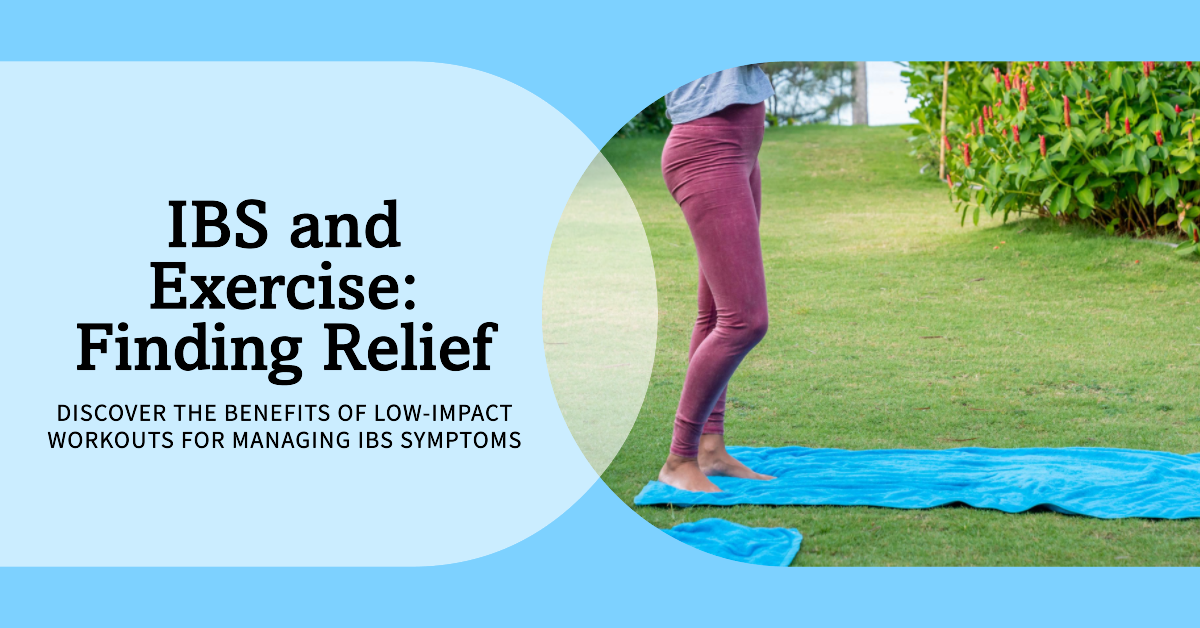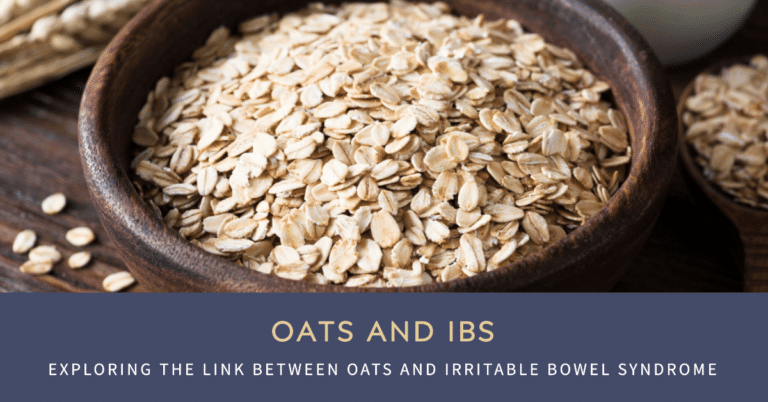IBS and Exercise: How to Stay Active Without Flare-Ups

Like many other people with IBS, I’ve often wondered if exercise could be a friend or foe. I’ve found it’s all about balance. Too much can trigger a flare-up, but too little can worsen symptoms of IBS.
I’ve learned how to stay active without aggravating my IBS, and I’m here to share these practical, empathetic insights with you.
You don’t have to let your fitness goals fall by the wayside to improve your IBS.
Here’s how…
Key Takeaways
- Regular exercise can actually help reduce IBS symptoms and make you healthier overall. Finding the right workouts is key though.
- Get to know your body – pay attention to how different exercises make your IBS feel. Gotta avoid anything that triggers a flare-up.
- Low or moderate intensity exercise tends to be safest for IBS. Build up gradually – no need to overdo it.
- Pace yourself and pick workouts that don’t bug your stomach or worsen symptoms. Work out smart and avoid hardcore exercises that cause issues.
The IBS And Exercise Link: How Physical Activity Improves Symptoms in Irritable Bowel Syndrome Sufferers
Figuring out exercise with IBS can be tricky.
Working out regularly can actually help improve symptoms and improve life for IBS patients.
But other workouts may trigger or worsen IBS symptoms, depending on the severity. It’s a real catch-22!
The key is understanding how your body reacts and monitoring if different exercises help or aggravate your IBS.
Things like running a marathon or high-intensity interval training often exacerbate this chronic condition.
But lower intensity, low-impact exercises done 2-3 times per week can really help relieve symptoms for people with IBS.
It all comes down to finding the best exercises and routine that improves your specific IBS symptoms.
The perfect exercise regime will be different for everyone. You’ve got to find what works for your body!
Start slow with low-impact workouts and gradually build up an IBS-friendly program.
Exercise and IBS can totally coexist in harmony! It just takes personalized trial and error to discover your best exercises for managing IBS.
Pay attention to what helps and what aggravates symptoms – a thoughtful fitness routine can work wonders!
Does Exercise Help IBS? – The Impact of Physical Activity On Symptoms
You’ve likely noticed how your physical activity levels can influence your IBS symptom management, haven’t you?
Regular exercise can help with symptoms and help you stay active without flare-ups.
| Physical Activity Level | Effect on IBS Symptoms | Recommendation |
| Low | Unlikely to increase symptoms | Gentle yoga |
| Moderate | Often increases symptoms | Walking or swimming |
| High | May trigger symptoms | Consult a doctor |
How to Choose the Right Exercise for IBS Management
Finding the perfect exercise to help IBS takes some experimenting, but it’s so worth it! The right workouts can be game-changers to improve IBS symptoms.
This isn’t about just pounding the pavement for miles.
Low- to moderate-intensity exercise done at least two to three times a week, like gentle yoga or walking, can work wonders to chill out gastrointestinal disorders and reduce the severity of symptoms in people with IBS.
You gotta tune into your own bod and see what helps or aggravates your symptoms. Take note of what worked for other IBS ballers to improve their situation. Observe and adjust!
It takes patience to unlock the magical exercise formula for your unique IBS situation. But don’t give up!
Keep trying different low-impact, low-stress routines until you nail it. Then get ready to feel some sweet, sweet IBS symptom relief!
Pacing Your Workouts to Avoid IBS Flare-Ups
Pacing your workouts can help to manage your symptoms, don’t you think? After all, with a bit of planning, we can stay active without flare-ups.
Exercise and IBS may seem challenging, but it’s crucial to understand that not all workouts trigger IBS symptoms.
Here’s what I suggest:
- Start slow: Don’t rush into intense workouts as they may trigger IBS flare-ups.
- Consistency is key: Regular, moderate exercise often helps to manage IBS symptoms.
- Listen to your body: If a particular exercise triggers symptoms, modify or avoid it.
- Hydrate and eat right: Proper hydration and diet can support your exercise routine without triggering IBS symptoms.
The Role of Hydration and Nutrition in Exercise and IBS
Listen up, IBS exercisers! Proper hydration and smart nutrition aren’t just about gains – they can be game changers for your gastrointestinal symptoms, too.
Staying hydrated keeps things moving smoothly through your guts to avoid unwanted flares. Adequate H2O helps minimize abdominal pain and discomfort.
Pay attention to trigger foods that wreak havoc on your abdominal region. A balanced diet optimized for optimal gut health provides energy without intestinal issues flaring up.
Your IBS symptoms may seem unpredictable, but don’t let that stop your fitness journey.
Hydration and nutrition know-how lets you take control back and develop an aerobic exercise routine that enhances your overall health.
Put that nutrition knowledge to work so you can keep optimizing your workouts with IBS! Don’t just guzzle water – be a hydration ninja.
And give your gut the TLC it needs to let you kick butt in your fitness regimen. You’ve got this!
Mindful Movement: Yoga and Meditation for Stress Relief
Incorporating mindful movements like yoga and meditation into your routine can be a game changer for those grappling
When living with IBS, these practices can significantly reduce stress and have positive effects on IBS. Here’s how:
- Deep Breathing: Regular practice can help relax the digestive tract, mitigating irritable bowel syndrome symptoms.
- Yoga: Specific poses can stimulate the gut, and overall, yoga can help reduce IBS symptom severity.
- Meditation: It’s a proven stress-reducer, which can positively impact your symptoms and quality of life.
- Mindfulness: By staying present, you can better understand your body’s reaction to IBS.
Worst Exercises for IBS: Perhaps Give These a Miss!
Think running wind sprints or grappling in a UFC match sounds like a blast with irritable bowel syndrome (IBS)? Think again. When it comes to hardcore exercise, IBS can cramp your style.
Activities like running, HIIT, competitive swimming, boxing – basically anything intense – can jolt your guts and trigger some not-so-pleasant symptoms. We’re talking diarrhea, cramps, bloating – the whole stinky repertoire.
So if you’re an IBS exerciser, maybe don’t sign up for that upcoming Tough Mudder just yet. Or at least start training super slow.
Low-impact workouts like walking, gentle yoga and Pilates are your new besties as they not only have a positive effect on stress but also help you manage your symptoms. Build up gradually and keep it mellow.
You can still work out with IBS – you just need to show your symptoms some TLC. Avoid intense exercise that exacerbates things and be BFFs with your body.
Tips for Staying Active and Managing IBS Long-term
Don’t let your condition keep you from leading a healthy life; there are ways to manage your symptoms and remain energetic while enjoying the positive effects of exercise.
Here are four simple strategies for managing IBS long-term and staying active without triggering flare-ups:
- Regular physical activity: Exercise regularly to help manage your symptoms by decreasing stress, a common IBS trigger.
- Monitor your diet: Knowing what foods trigger your IBS can aid in prevention.
- Stay hydrated: Drinking plenty of water can help reduce constipation.
- Practice stress management: Techniques like yoga or meditation can provide IBS relief by reducing stress levels.
IBS and Exercise: Closing Thoughts
Physical activity can help manage irritable bowel syndrome to a great degree when you go about it in the right way.
Low-impact activities like walking or gentle yoga are great exercises to try, as these forms of exercise are less likely to aggravate symptoms.
By tuning into your body, you can begin following a new exercise routine tailored to your IBS and avoid forms of activity more likely to make your symptoms worse.
A little trial and error will work wonders for you as you aim to discover the physical activities best for your IBS.
So don’t be afraid to experiment to keep those pesky IBS symptoms under control!
Disclaimer: This content is based on my personal experience as an individual diagnosed with celiac disease and IBS (Irritable Bowel Syndrome) who follows a strict gluten-free diet. This does not constitute medical advice. Please consult a medical professional, nutritionist, or qualified dietitian for personalized, professional advice.






